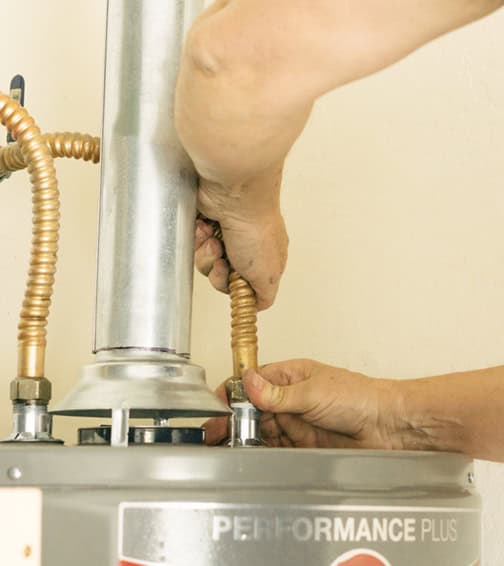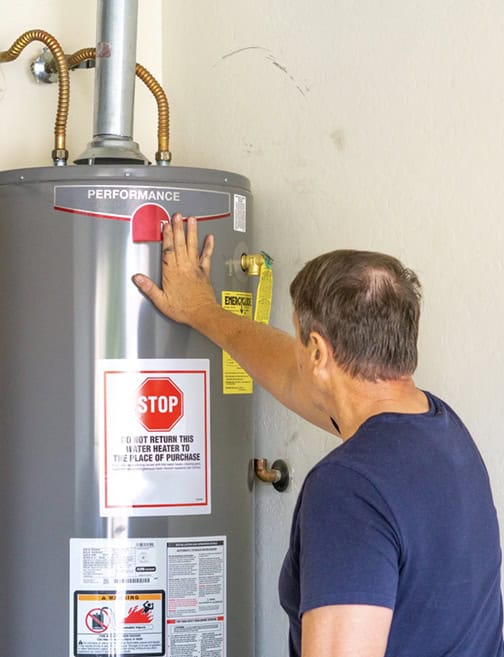Should I Repair or Replace My Water Heater?

Water heaters are an essential component of modern homes, providing hot water for various daily activities such as bathing, washing dishes, and doing laundry. However, like any appliance, water heaters can experience issues over time, leading to a common dilemma: should you repair or replace your water heater?
This decision can significantly impact your home’s comfort, energy efficiency, and long-term costs. Quality Plumbing is here to guide you through the factors to consider when deciding whether to repair or replace your water heater, helping you make an informed choice that best suits your needs and budget.
Signs Your Water Heater Needs Attention
Before diving into the repair or replace your water heater debate, it’s important to recognize the signs that your water heater needs attention. Being aware of these indicators can help you address issues early, potentially saving you money and preventing more significant problems down the line.
- Age of the Unit: The age of your water heater is a primary factor in determining whether it needs attention. Most traditional tank water heaters have a lifespan of 8-12 years, while tankless models can last up to 20 years. If your unit is approaching or has surpassed these age ranges, it’s time to start paying closer attention to its performance.
- Inconsistent Water Temperature: If you notice fluctuations in water temperature or that your hot water doesn’t last as long as it used to, it could be a sign that your water heater is struggling to keep up with demand. This issue may be due to a failing heating element, thermostat problems, or sediment buildup in the tank.
- Unusual Noises: Strange sounds coming from your water heater, such as popping, crackling, or rumbling, can indicate sediment buildup or other internal issues. These noises occur when mineral deposits accumulate at the bottom of the tank, causing the heating element to work harder and potentially leading to damage.
- Visible Leaks or Corrosion: Any signs of water pooling around the base of your water heater or visible rust and corrosion on the tank or connections are serious red flags. Leaks can lead to water damage and mold growth, while corrosion can compromise the structural integrity of the unit.
Any of these signs should signal to you that it is time to get your water heater worked on and remedy the issue. However, do you need to repair or replace your water heater?
Factors to Consider When Deciding to Repair or Replace Your Water Heater

Once you’ve identified that your water heater needs attention, several factors come into play when deciding whether to repair or replace the water heater unit. For example, the age of your water heater is a crucial consideration. If your unit is nearing the end of its expected lifespan, replacement might be a more cost-effective option in the long run, even if the current issue seems minor.
If you find yourself calling for repairs more frequently, it might be time to consider a replacement. Multiple repairs can add up quickly, and continuing to fix an aging unit may not be the most economical choice. Also, newer water heater models are often significantly more energy-efficient than older ones. If your current unit is outdated, replacing it with a more efficient model could lead to substantial energy savings over time.
Repair or Replace Your Water Heater: Making the Right Decision
When deciding between repairing or replacing your water heater, consider the unit’s age, the nature of the issue, and long-term costs. Repairing can be cost-effective for minor issues in newer units, extending their lifespan and providing a quick solution. However, replacement offers improved energy efficiency, long-term cost savings, enhanced performance, and access to newer technologies. Consider the following before making a decision:
- Age of the water heater
- Frequency and cost of repairs
- Energy efficiency of current vs. new models
- Household hot water demands
- Long-term cost implications
- Availability of new technologies and features
Generally, repair is preferable for units less than ten years old with easily fixable issues, while replacement is recommended for units over 10-15 years old, those requiring frequent repairs, or when significant energy efficiency improvements are available in newer models.

Contact Quality Plumbing for Expert Water Heater Solutions
The decision to repair or replace your water heater is not always straightforward. By understanding the signs that your water heater needs attention and weighing the benefits of both repair and replacement, you can make an informed decision that best suits your household’s needs and budget.
Don’t wait until you’re left without hot water. Contact Quality Plumbing today for a comprehensive evaluation of your water heater. We’ll help you determine the most cost-effective and efficient solution for your home.

